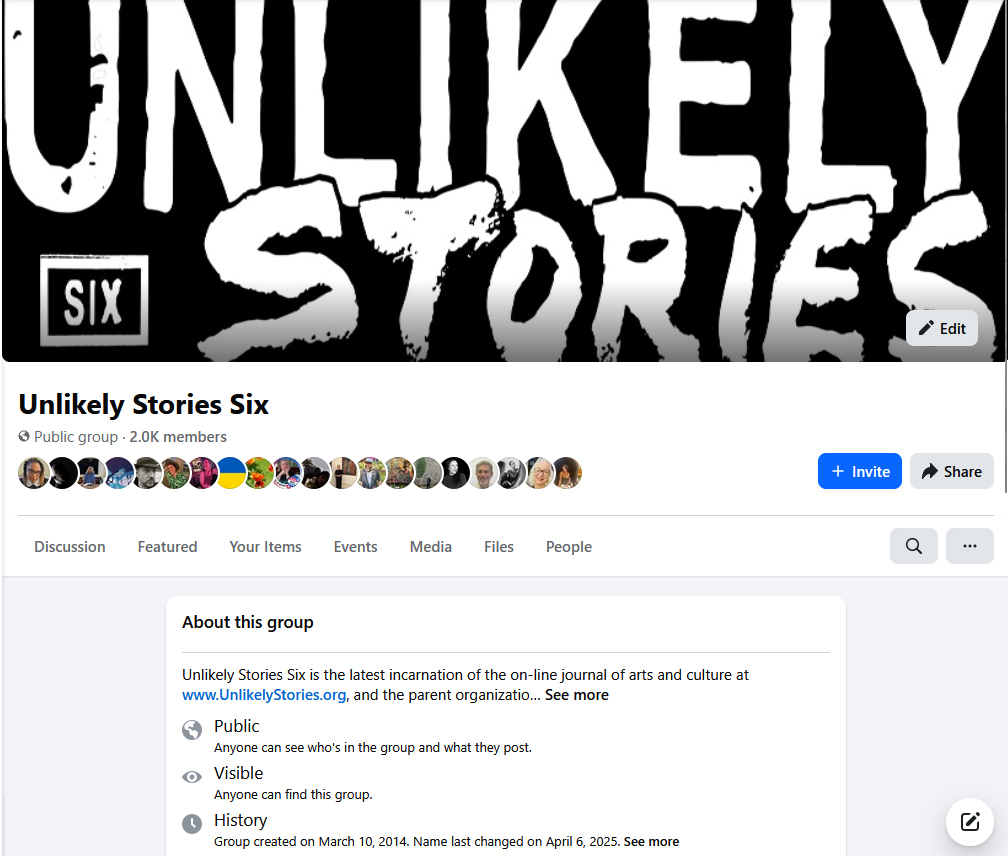by Arthur Davis
The horizon was chocked with soldiers.
I could see our troops advancing through the filthy glass bedroom window. It had a fine crack in it that ran from top to bottom. It had been there when we moved in. I was a child that long ago. I bet my twin brother when it would split in half. Neither of us understood the physics of it all. Just as long as we could disagree we knew our inner voices were working.
Neither of us could speak, at least in a way outsiders could understand. We had been that way since birth. We understood everything, but couldn’t communicate. We were tested and got identical perfect scores. Our doctors and parents assured us there was no reason we couldn’t speak. Comforted by our remarkable intelligence and soothed by the idea that someday we would find a way to break through our tourniquet of silence, we moved forward together.
There was great hope for Ricard and myself. People were insistently curious. Their interest never flagged. Their expectations never waned.
We quickly came to resent the burden of such responsibility. We were lab rats in the cage of life. The world held its breath, and that breath had already begun to weigh heavily before we were ten years old.
# # #
“You want to go outside?” Ricard would say without words at the dawn of each day.
“What’s out there that’s so special? Everyone else is out there. If I go outside, they will find me and watch me and think they know me.”
“Me too.”
We dressed ourselves before the sun broke through the morning haze and wore the same clothes every day until they fell like exhausted rags from our bodies.
Our parents were highly educated, extraordinarily tolerant and confident that all we needed was time.
Every so often some expert would come up with a theory. And with each new version they came calling, and my beleaguered parents grew older.
By the time we were twelve we had mastered most subjects at the college level and were allowed to enter a prestigious graduate program. We moved along at a blistering pace, unsettling both professors and classmates.
Freaks. No matter what, we were freaks.
A species that hadn’t yet been classified and which many now held in great suspicion.
# # #
By his early twenties Ricard had been dying from the insides out.
Had I been a more attentive brother, I might have recognized the symptoms. But I was trying to recover from the loss of our mother. She passed away over three days at a local hospital. It broke our father before he was fifty.
Our father lasted another three years, withering to frailty like an animal in a time machine in reverse. He passed in his sleep the week after our twenty-third birthday.
There were ample funds from my mother’s side of the family to keep us safe and protected for a generation. We wanted for little and thrived on isolation.
Half a decade after our father’s death, Ricard took his own life. Too weak from wracking pain, he couldn’t wait for natural causes to bring him a last breath. I was badly shaken. I had lost half of my soul and most of my conscience.
And both my parents.
Choking back the grief, I plunged myself into working twenty-hour days. I became more productive, focused and more driven than ever. Over the next decade I published half dozen papers on cosmology, particle physics, and molecular theory.
Honors poured in. The scientific community that stood behind our late development roared with approval, which fueled a groundbreaking paper expanding on Hawking Radiation and a defining treatise on the unpredictability of the Higgs Boson.
My work on dark matter and dark energy was still in its infancy, but well received.
# # #
Cannon fire in the distance.
The turmoil of war is relentless.
A cycle mankind can’t escape. A parasite that has blighted our hearts since we came down from the trees. I still had funds to have a full-time maid who cooked and cleaned, though not as carefully as I wanted. But there was a reason to make her happy.
I looked over at the calendar on my bedroom wall. It was November. We no longer celebrated Thanksgiving, as most other holidays drifted away leaving the only issue, salvation.
“I’m leaving now,” Angela said, standing at my bedroom door.
“It’s only two?”
“Yes. I know, but I have to go and I wouldn’t be back.”
I pivoted my wheelchair around. “What?”
“My family needs me.”
“I need you.”
“Yes, but I have to go and find another home for my children. The war comes too close. It is no longer safe.”
Yes. Of course. “I will miss you,” I said and opened my desk drawer.
“No. Please no. You have been generous enough.”
“Surely you can use the money?”
“On what? There is no food. Clean water is impossible to find.”
“How far away are they?”
“I don’t know. Maybe a few days.”
She started to cry. Tiny tears rippled down her gaunt cheeks. She wasn’t yet thirty and looked as if she had lived out most of her life.
“I guess I will have to stay.”
“You can’t. You will be killed.”
I hadn’t considered that possibility, only that with Angela I could speak.
For the first time in my life, I could talk the day after she arrived. I loved her for that alone. I didn’t want her to die, but I wanted to talk, to anyone about anything anytime I wanted.
When she left, I knew my words would fail.
She turned and fled. I was alone.
I started to say “good-bye,” but the words never formed.
Now I am alone.
No mother, father, or brother.
Just a crack in my bedroom window which I now believed would go on forever.




Add comment